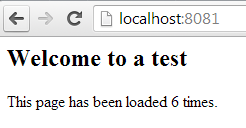pst-obj is a rudimentary utility for setting up a persistence layer in your app for node. It extends an object with a single non-enumerable function that allows you to persist that object to a specified file location. When stored the object is serialized to JSON format and stored in a UTF-8 character encoded file.
Install
npm install pst-obj
Download
You can download it here or peruse the code on github: https://github.com/patcullen/pst-obj.
Why
Quite often now I'm finding myself creating little doodads in nodejs. My latest invention [read distraction] was a small app to control the light overhead in the room via a relay. It had some automatic triggers defined to flip once text had been detected in certain RSS streams, and of course a small one page one button interface to change the state of the light (mostly to play disco-tech in the office).
It's these low volume low risk types of applications I don't really want to setup a database or any third party services for. I had considered settings file type interfaces, but really much preferred the idea of JSON. (I also wanted half a good reason to publish to npm for a first time.) I've used pst-obj to persist single attribute objects, and some with fairly large (long and deep) data structures - the general rule is, if you know your data can be JSON'ed, then this should suffice as a usable, albeit rudimentary, persistence option.
Example
The above example when started and stopped a few times while also refreshing the page in a browser, should give a result similar to this:


No comments:
Post a Comment